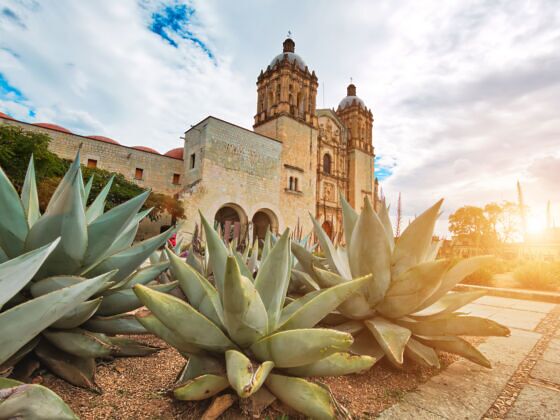THERE’S A LEAK in the hose, and as I water the garden, my son and the three neighbor kids are playing in the spray. They’re all laughing so hard that only 3-year-old Chucho notices when I go behind the house and turn the water off. I return just in time to see their faces fall as the arc of water peters out.

“The ginga turned it off,” Chucho announces.
He doesn’t pronounce his R’s yet, so it takes me a minute.
“Who’s a gringa?” I ask, mock angry. “That’s Doña Tere to you!”
I know Chucho doesn’t mean to hurt me, or even know what “gringa” means; he’s only repeating what he’s undoubtedly heard his parents say when I’m out of earshot. But I mind that. I’m their neighbor. They know my name.
I don’t mind, anymore, being called “La Güera”—the light-skinned one. It offended me until I understood that here in Mexico, it’s standard to nickname people—affectionately—in accordance with their physical features: the Light-skinned One, the Dark-skinned One, Light Eyes, Slanty Eyes, Curly Top, Baldy, Shorty, Fatty, Skinny…. The American, P.C., pretend-not-to-notice-people’s-color-or-size standard doesn’t apply here. My husband’s family calls him “El Negro”—the Black One, the Really Dark One—and I can’t deny that, yes, I’m güera; our son is güero; it’s true.
But I mind “La Gringa.” It does, I suppose, have something to do with my physical appearance in that you don’t hear “gringo” applied to Americans of color very often. But it doesn’t just mean “white girl.” I hear, “rich white stranger from America who has no business being here.” And I can deny that, or at least argue with it.
We’re nowhere near being rich, though we are better off than Chucho’s family, and my parents and some of our friends have the means and generosity to occasionally help us through a rough patch. White, we’ve established, I undeniably am, and American too. (And my son? His skin is white, but he’s half Mexican; he has Zapotec blood running through his veins. He’s güero, but is he white? He has two passports. What is he?)
It’s the “outsider” part of “La Gringa” that stings. I want to be home here. I do have business being here, if you consider love “business.” I never intended to end up here, but here I am, and I’ve planted my feet, planted trees, given things up, given birth. I’ve changed, or been changed.
I know, I know, despite all that, in just three years I can’t expect to be an honorary native—I can’t even apply for citizenship yet, and when I can, this fall, I’m not positive that I will. I just feel sad, a little, that of all the places I’ve lived, the one that’s turned out to be home is the one where I’ll probably never really fit in.
My friends and I used to laugh at the earnestness with which our high school teachers would discuss the “melting pot” versus the “salad bowl” as a metaphor for America. And it’s still funny—in four years, we probably spent more class time on that debate than on any other single issue. But I do, now, appreciate that yes, the salad bowl, or melting pot, or club sandwich, or Chex Mix that is America is perhaps a goofy metaphor, but a beautiful ideal. Ideal, okay? Because I know the immigrant experience in America is not always an easy one.
I know there are worse words than “gringa.” That I don’t know the half of it. But sometimes I’d like to just be folded into the whole here. Tossed into the salad. Maybe in time.
Anyway, the neighbors got the message. They don’t call me “La Gringa” anymore. Chucho’s fourth birthday is this week, and I offered to make the cake. I can’t make cake into a food-metaphor for diversity and tolerance and belonging, but I guess that’s just as well. I know I’m overthinking this. Time to bake, instead.